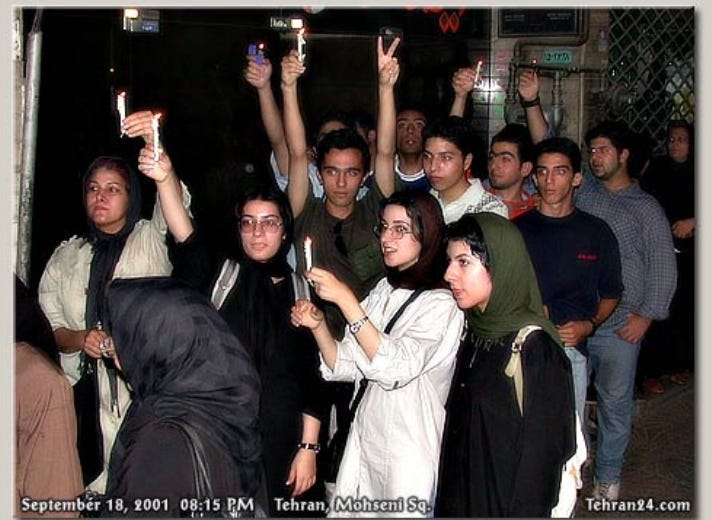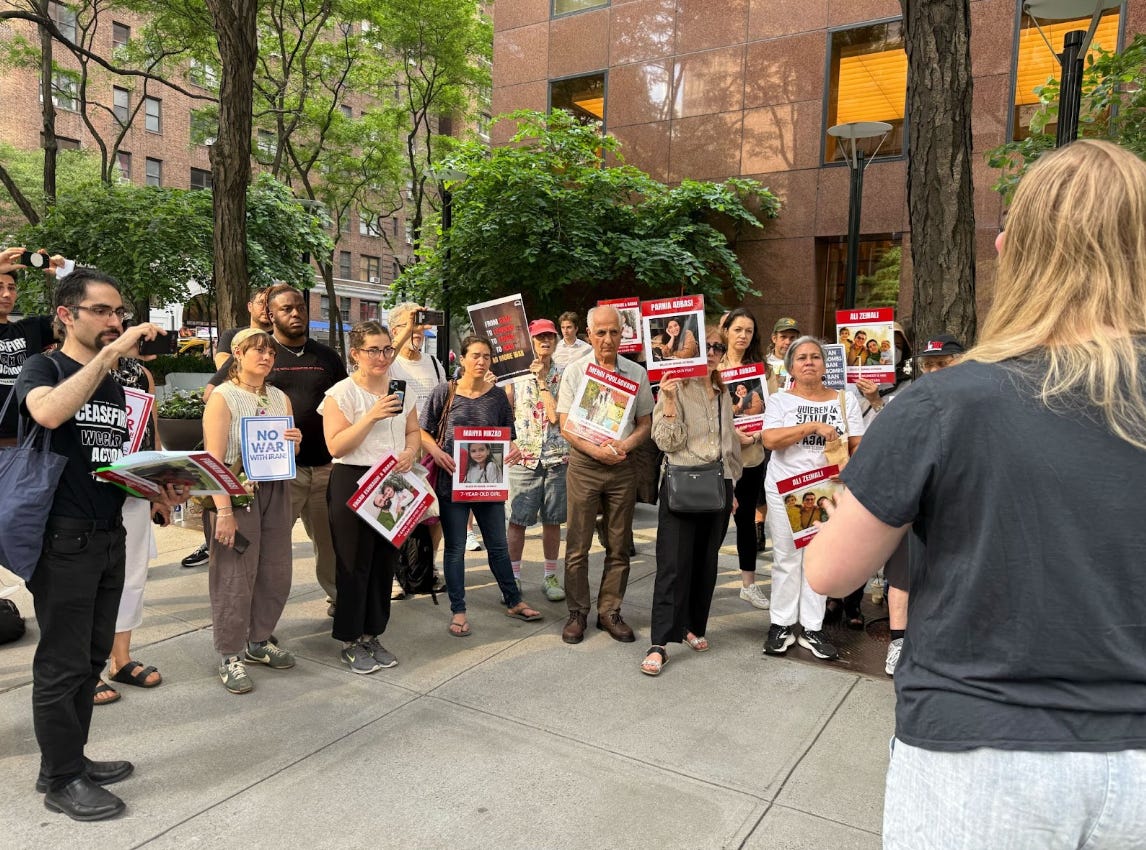The Fallout of 9/11 Persists Today, and So Do We - Reflections from NIAC Over 20 Years Later
In the days after 9/11, Iranians gathered in public squares to light candles, hold vigils, and cry in the streets for American lives lost. It was one of the largest public displays of solidarity after the attacks, and a powerful reminder that ordinary people can choose empathy even when governments remain divided.
Today, on the anniversary of September 11, we remember the lives lost and the families forever changed on that day. For our community, the day carries an additional weight—a reminder of both the compassion shared between ordinary Iranians and Americans, and the hardships many in our community faced in its aftermath.
Sadly, back home here in the United States, many in our community were met with suspicion instead of solidarity. Those tensions only increased as President George W. Bush made his infamous “Axis of Evil” speech naming Iran, Iraq and North Korea the enemies of our country. The U.S. government ushered in a new era of surveillance, profiling, discrimination and attacks on our rights that continues to day - from the creation of the Department of Homeland Security and ICE, to the PATRIOT Act and programs like NSEERS “special registration” that targeted immigrants and sowed fear.
The seeds of repression sown after 9/11 persist today. Our community faces a baseless travel ban that has separated our families on the basis of nationality alone. ICE is a lawless and violent agency detaining Iranian nationals and immigrants of all backgrounds at record levels. The history of surveillance continues through ICE’s partnerships with Palantir and Paragon Solutions, expanding high-tech monitoring and data collection. And we are more at risk of war with Iran breaking out than ever.
Iranian Americans, like many other targeted groups, remain subjected to violations of due process, invasive interviews, long visa delays, and even the closing of bank accounts—parallels to the Muslim Ban and subsequent Travel Ban that prolonged family separations for years. And just as dissent was chilled in the early 2000s, we now see critics of U.S. foreign policy and immigration enforcement facing intimidation, censorship, and heightened scrutiny under the guise of ‘national security.’ These experiences were part of what led to NIAC’s founding: to defend our rights, protect our dignity, and ensure our voices would not be silenced.
This summer, in June, Iranian Americans leaders joined Peace Action, Brooklyn For Peace, IfNotNow, and local rabbis to lead a candlelight vigil outside Senator Chuck Schumer’s Manhattan office, honoring civilians killed in the 12 day Israel-Iran war and pleading for him to endorse a congressional war powers resolution on Iran. People joined hands across backgrounds to tell our elected leaders once again that grief must not become fuel for endless conflict.
Two decades later, the lesson of 9/11 endures: we cannot allow grief to be weaponized into more division. At NIAC, we continue to push for policies that treat our community with fairness—ending discriminatory bans, restoring access to visas, protecting civil rights—and for U.S. foreign policy that prioritizes diplomacy over sanctions and war. We do this knowing that ordinary Americans and Iranians alike want peace, dignity, and the chance to live freely.
Our community knows too well that ordinary people suffer when governments choose repression, fear, or conflict over humanity.
As we honor the memory of those who were killed in the September 11 attacks, we also lift up the truth about our community then and now, and will keep fighting for our rights. As Iranians did after 9/11, we will continue to light the path toward a future shaped by understanding instead of fear.





